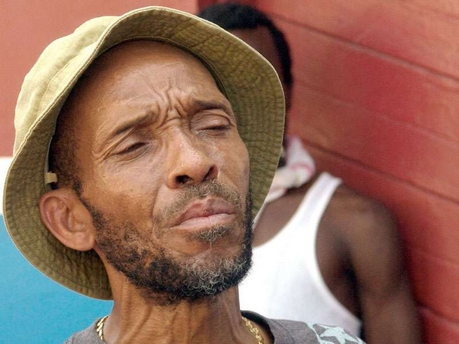(Jamaica Gleaner) Under a Jamaica Labour Party (JLP) administration, convicted killer Donald ‘Zeeks’ Phipps dropped his attempt to get back approximately J$24 million which the police had seized at his house after the State challenged his claim.
Under a People’s National Party (PNP) administration, Zeeks renewed his application for the refund of the money and the State dropped its challenge.
Within six weeks after the application was renewed, the State agreed to refund the money, and the former strongman of one of the few PNP enclaves in the JLP garrison of West Kingston was on his way back to being a multimillionaire even as he serves life in prison.

Attorney General Patrick Atkinson says there was no legal basis for the State to hang on to the money. Persons in legal and security circles say even if the money were returned, lawyers representing Zeeks should have been asked to prove how he came by it.
Five years ago when prosecutors balked at returning approximately J$24 million seized at the upper St Andrew home of convicted murderer Donald ‘Zeeks’ Phipps and asked him to prove how he earned the money, the former Matthews Lane strongman discontinued his claim to the cash, revealed court documents reviewed by The Sunday Gleaner.
The documents show that Phipps renewed his claim to the money last June, six months after the political party he supported, the People’s National Party (PNP), was voted back into power.
Lawyers representing Phipps filed a civil suit in the Supreme Court against the Attorney General’s Department (AGD) seeking the return of the money, and in six weeks, a consent order was made for the cash to be returned to him.
The monies – J$8.35m; US$152,185; £19,020; and CDN$3,980 – which were taken from his Highland Close home in May 2005, was returned to Phipps in three payments last year.
Having withdrawn his claim in 2008, Phipps claimed, in his 2012 affidavit, that he believed the retention of the money by the State was unlawful.
“I do verily believe that the continued retention of the property which was found in my house, to which I have proprietorial and possessory entitlement, is in breach of my right to property under Section 13 of the Constitution,” he argued in paragraph seven of the affidavit.
LITTLE RESISTANCE FROM STATE
However, the court documents showed that unlike prosecutors in 2008, who demanded that Phipps prove how he earned the cash, the AGD raised minimal challenge to Phipps’ claim.
“It is admitted that the retention of the money is unlawful,” the AGD wrote in paragraph six of its defence limited to damages.
Attorney General Patrick Atkinson defended the AGD’s action, saying based on the instructions the department received, there was no legal basis that prevented Phipps from getting his money back.
“We checked around … with the FID (Financial Investigation Division), everybody, and there was no reason for it being held,” argued Atkinson.
“We don’t just take people’s money without a legal basis,” he insisted.
The cash was seized during a police-military operation in 2005.
Phipps and his girlfriend, Yvonne Salisman, were jointly charged with unlawful possession of property, but the charges were dropped in October 2006 when the Office of the Director of Public Prosecutions (ODPP) entered a nolle prosequi.
A senior law-enforcement official with knowledge of the case said this led Phipps, through his attorneys, to file an application in the Corporate Area Resident Magistrate’s Court seeking to have the money returned to him immediately.
However, the official said prosecutors, armed with a criminal profile of Phipps that was developed by the FID, opposed the move and sought to have the money forfeited to the State “on the basis that there was no evidence it was the lawful property of Mr Phipps”.
“The resident magistrate … even adjourned the matter several times to give them (Phipps and his legal team) time to put evidence before her showing how he earned the money,” the official recounted.
Head of the FID, Justin Felice, would not comment on the case. However, he confirmed that as part of its mandate, the agency does create “financial profiles of specific targets and individuals” who are under suspicion.
“We want to see if money laundering or any other financial crimes are being committed because my job is to take the profit out of crime,” Felice asserted.
CHANGE OF HEART
The law-enforcement official said in October 2008, one of Phipps’ attorney informed the magistrate that they were withdrawing their application to have the cash returned.
According to the official, all this information was contained in a file turned over to the AGD by the ODPP when Phipps filed his suit last year.
Court records show that the AGD agreed to a consent judgement in Phipps’ suit, even while it acknowledged that the ODPP had opposed his first application in 2008.
“The prosecution (in the unlawful possession case that was filed against Phipps) applied to detain the monies under Section 44 of the Constabulary Force Act,” read a section of the affidavit filed by the AGD in its defence that was limited to the award of damages.
But while acknowledging prosecutors’ concerns, Atkinson pointed out that the money was not the subject of a criminal case, forfeiture proceedings or any other case that is pending.
As a result, Atkinson insisted that “there was no legal basis for it to remain in the custody of the State”.




